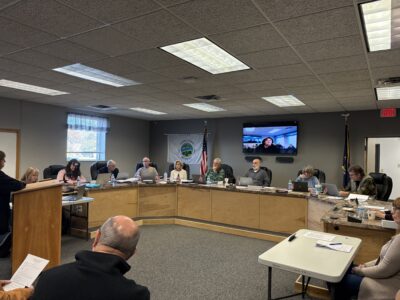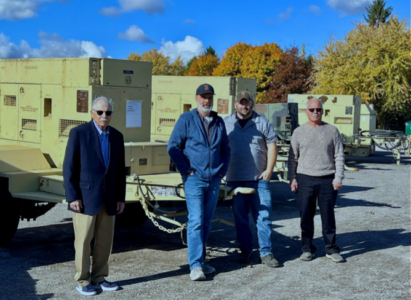Peters and Slotkin seek answers regarding PFAS cleanup, including at base in Alpena

File photo The Alpena Combat Readiness Training Center
WASHINGTON, D.C– People in Alpena may soon learn more abut why is taking so long to clean up the per- and polyfluoroalkyl (PFAS) contamination at the Alpena Combat Readiness Training Center in Alpena.
U.S. Senators Gary Peters (D-MI), Ranking Member of the Homeland Security and Governmental Affairs Committee, and Elissa Slotkin (D-MI) are demanding answers from Department of Defense (DOD) Secretary Pete Hegseth, after the agency quietly delayed cleanup timelines for toxic PFAS contamination at military sites nationwide, including Alpena.
The senators are calling for immediate transparency and accountability, citing delays of up to seven years with no public explanation or community notification.
The six affected locations in Michigan include Selfridge Air National Guard Base, Wurtsmith Air Force Base, KI Sawyer Air Force Base, Alpena Combat Readiness Training Center, Kellogg Air National Guard Base, and Kincheloe Air Force Base.
“We write to request more information about the Department of Defense’s (DOD) decision to delay clean-up of the PFAS pollution from military sites across the country, including six in Michigan,” Peters and Slotkin. “The DOD delayed these cleanup timelines with no public announcement or explanation, and the Pentagon still has not provided a clear rationale for these changes. We urge you to immediately reverse these clean-up delays, restore the earlier remediation timetables as applicable, and provide greater transparency to affected communities moving forward.”
PFAS, commonly known as “forever chemicals” are linked to serious health risks including cancer, reproductive harm, and immune system disruption. These chemicals persist in the environment and accumulate in the human body over time. Military installations are hotspots for PFAS contamination due to decades of use in firefighting foams and industrial solvents during training exercises.
Tests done by the federal government at the base in May 2017 detected PFAS in groundwater at levels above the federal Lifetime Health Advisory level of 70 parts per trillion. The state was notified of those results and got involved in October of that year and sampling and testing of drinking wells within a one-mile radius of the base continue, and nearly all tests have shown no unsafe water. A series of public meetings were also held at the base to educate and warn the public.
Public educational meetings and informational sessions were held several times afterward, and testing of residential water wells started shortly after.
Peters has worked with communities across Michigan for years on PFAS remediation efforts. In 2022, Peters convened a field hearing in East Lansing with officials from the Department of Defense, Health and Human Services, and the Environmental Protection Agency. This hearing examined federal efforts and coordination with state and local governments to clean up and prevent contamination from PFAS, and to examine the impacts exposure to these toxic chemicals has had on servicemembers, first responders, families, and other Michiganders. In September 2018, Peters helped convene the first-ever hearing on PFAS contamination in the Senate, which assessed the federal government’s response to PFAS contamination and remediation efforts. In 2022, Peters’ bill to help protect firefighters and emergency responders from PFAS exposure in the line of duty was also signed into law.






